List of political parties in the United Kingdom
This article lists political parties in the United Kingdom.
Brief history and overview
Before the mid-19th century, politics in the United Kingdom was dominated by the Whigs and the Tories. These were not political parties in the modern sense but somewhat loose alliances of interests and individuals. The Whigs included many of the leading aristocratic dynasties committed to the Protestant succession, and later drew support from elements of the emerging industrial interests and wealthy merchants, while the Tories were associated with the landed gentry, the Church of England and the Church of Scotland.
By the mid 19th century, the Tories had evolved into the Conservative Party, and the Whigs had evolved into the Liberal Party. The parliament was presided over by a speaker, who handled proceedings. The concept of right and left came originally from France, where the Right supported a smaller state with less influence on the lives of the public, the Left advocated a larger state with more influence on the lives of the public. In the late 19th century the Liberal Party began to lean towards the left, and the seating in the house of commons began to reflect this: Right of the speaker were those supporting right wing politics, the Conservatives; left of the speaker were those supporting Left wing politics, the Liberals. Liberal Unionists split off from the Liberals over Irish Home Rule and moved closer to the Conservatives over time.
The Liberals and Conservatives dominated the political scene until the 1920s, when the Liberal Party declined in popularity and suffered a long stream of resignations. It was replaced as the main anti-Tory opposition party by the newly emerging Labour Party, which represented an alliance between the labour movement, organised trades unions and various socialist societies.
Since then the Conservative and Labour parties have dominated British politics, and have alternated in government ever since. However, the UK is not quite a two-party system as other parties have significant support. The Liberal Democrats were the third largest party until the 2015 general election when they were overtaken by the Scottish National Party in terms of seats and UK political party membership, and by the UK Independence Party in terms of votes.
The UK's First Past the Post electoral system leaves small parties disadvantaged on a UK-wide scale. It can, however, allow parties with concentrations of supporters in the constituent countries to flourish. In the 2015 election there was widespread controversy[1][2][3] when UKIP and the Green Party of England and Wales received 4.9 million votes[4] (12.6% of the total vote for UKIP and 3.8% for the Greens) yet only gained one seat each in the House of Commons. After that election, UKIP, the Liberal Democrats, and the Green Party of England and Wales, together with its Scottish and Northern Ireland affiliated parties, the Scottish National Party and Plaid Cymru, delivered a petition signed by 477,000[5] people to Downing Street demanding electoral reform.
.jpg)
Since 1997, proportional representation-based voting systems have been adopted for elections to the Scottish Parliament, the National Assembly for Wales, the Northern Ireland Assembly, the London Assembly and the UK's seats in the European Parliament. In these bodies, other parties have had success.
Traditionally political parties have been private organisations with no official recognition by the state. The Registration of Political Parties Act 1998 changed that by creating a register of parties.
Membership of political parties has been in decline in the UK since the 1950s, falling by over 65% from 1983 (4% of the electorate) to 2005 (1.3%).[6]
The start of political parties
The Electoral Commission's Register of Political Parties[7] lists the details of parties registered to fight elections in the United Kingdom, including their registered name. Under current electoral law, including the Registration of Political Parties Act, the Electoral Administration Act 2006, and the Political Parties, Elections and Referendums Act 2000, only registered party names can be used on ballot papers by those wishing to fight elections. Candidates who do not belong to a registered party can use "independent" or no label at all.
As of 3 August 2015 the Electoral Commission showed the number of registered political parties in Great Britain and Northern Ireland as 492.[8]
Parliamentary parties
Two parties dominate politics in the House of Commons. Each one operates throughout Great Britain (only the Conservative and Unionist Party stands candidates in Northern Ireland). Most of the British Members of the European Parliament and the National Assembly for Wales represent one of these parties:
- Conservative and Unionist Party, centre-right (316 seats in the House of Commons)
- Labour Party, (257 seats)
- Co-operative Party (all Co-operative Party MPs are also Labour MPs as part of a long-standing electoral agreement)
Party descriptions
| Party | Description | |
|---|---|---|
| Conservative and Unionist Party | A party loosely divided into three categories: The Thatcherites or Conservative Way Forward, who strongly support a free market and tend to be Eurosceptic; the economically moderate, often more pro-European and socially liberal One Nation Conservatives, and the socially conservative, deeply Eurosceptic Cornerstone Group. | |
| Labour Party | A big tent party, broadly centre-left with roots in the trade union movement. | |
| Scottish National Party | Scottish nationalist and social democratic party which supports of Scottish Independence and membership of the European Union. | |
| Liberal Democrats | Liberal and social liberal. The party's main two branches are the social-liberal grouping, and the 'Orange Book' grouping, which supports classical economic liberalism. Strongly supports membership of the European Union. | |
| Democratic Unionist Party | Unionist and national conservative party in Northern Ireland. Socially conservative with close links to Protestantism. | |
| Sinn Féin † | Irish republican party that supports the unification of the island of Ireland as a 32-county Irish republic. | |
| Plaid Cymru - Party of Wales | Social-democratic and Welsh nationalist party in favour of Welsh independence. | |
| Social Democratic and Labour Party | Social-democratic and Irish nationalist party supporting a United Ireland. | |
| Ulster Unionist Party | Unionist party in Northern Ireland, conservative but with liberal factions. | |
| Green Party of England and Wales | Green political party that favours eco-socialism,[19] environmentalism,[19] sustainability[19] and non-violence.[19] | |
| UK Independence Party | Eurosceptic and right-wing populist party. Favours national sovereignty, direct democracy, social conservatism and economic liberalism. | |
| Alliance Party of Northern Ireland | Liberal and centrist political party in Northern Ireland. | |
| Libertarian Party | Libertarian party in favour of traditional Libertarianism and Euroscepticism. | |
| Scottish Green Party | Green political party in favour of Scottish independence and Scottish republicanism. | |
| Green Party in Northern Ireland | Green political and nonsectarian party in Northern Ireland. | |
| Traditional Unionist Voice | Strongly social and national conservative unionist party in Northern Ireland, opposed to the St Andrews Agreement. | |
| People Before Profit | Socialist party. | |
† Sinn Féin MPs do not take their seats in the UK House of Commons as they refuse to swear allegiance to the Crown, nor recognise Westminster's right to legislate for any part of Ireland.
Local government
Principal authorities
Civil parishes and community councils
| Party | Political Position | Leader | Councillors | |
|---|---|---|---|---|
| Independents for Frome | Localism | Mel Usher | 17[54] | |
| Devizes Guardians | Conservationism, Localism | Nigel Carter | 11[55] | |
| Official Monster Raving Loony Party | Satire | Howling Laud Hope | 6 | |
| Social Democratic Party | Social democracy | Peter Johnson | 2 | |
| Pirate Party | Pirate politics | Harley Faggetter | 1 | |
No elected representation
This is a list of notable minor parties. Many parties are registered with the Electoral Commission but do not qualify for this list as they have not received significant independent coverage.
Miscellaneous minor UK parties
- Animal Welfare Party
- No Candidate Deserves My Vote
- Peace Party
- Populist Party (2015–present)
- Women's Equality Party (2015–present)
- Young People's Party UK
Minor UK left-wing and far-left parties
- Socialist Party of Great Britain (1904–present)
- Communist Party of Britain (Marxist-Leninist) (1968–present)
- Workers' Revolutionary Party (1973–present)
- Revolutionary Communist Group (1974–present)
- New Communist Party (1977–present)
- Socialist Workers Party (1977–present)
- Revolutionary Communist Party of Britain (Marxist-Leninist) (1979–present)
- Socialist Equality Party (1986–present)
- International Socialist League (1987–present)
- Communist League (1988–present)
- Communist Party of Britain (1988–present)
- Communist Party of Great Britain (Provisional Central Committee) (1991–present)
- Independent Working Class Association (1995–present)
- Socialist Labour Party (1996–present)
- Socialist Party (England and Wales) (also main constituent of TUSC; has stood as "Socialist Alternative") (1997–present)
- Socialist Resistance (part of Left Unity) (2002–present)
- Alliance for Green Socialism (2003–present)
- Communist Party of Great Britain (Marxist-Leninist) (2004–present)
- TUSC (Trade Unionist and Socialist Coalition) (2010–present)
- Left Unity (2013–present)
Minor UK right-wing and far-right parties
- National Front (1967–present)
- British National Party (1982–present)
- National Liberal Party (1999–present)
- Britannica Party[56][57][58] (2011–present)
- British Democratic Party (2013–present)
- For Britain (2017–present)
- Democrats and Veterans (2018–present)
Minor UK centrist and pro-European parties
Minor UK religious parties
- Christian Peoples Alliance (1999–present)
- Christian Democratic Party (UK) (1999–present)
- The Common Good (2004–present)
- Christian Party (successor to Operation Christian Vote) (2005–present)
Minor English parties
- Community Action Party; local centre-left party in Wigan.
- Community Group; local party in Doncaster.
- English Democrats; campaign for self-government for England.
- National Health Action Party.
- People's Democratic Party, a populist party focused on Northern England.
- The Republic Party, based in Pendlebury, Salford. Campaigning for the UK to become a Republic.[61]
- Roman Party.
- Wessex Regionalist Party, campaigning for devolution for Wessex.
Minor Scottish parties
- Borders Party
- Communist Party of Scotland
- Independent Green Voice
- RISE – Scotland's Left Alliance; electoral alliance formed by SSP and former ISG
- Scotland Against Crooked Lawyers
- Scottish Christian Party – the successor to Operation Christian Vote in Scotland.
- Scottish Democratic Alliance – the successor to Scottish Enterprise Party
- Scottish Libertarian Party, a libertarian, pro-independence and Eurosceptic party
- Scottish Senior Citizens Unity Party
- Scottish Socialist Party, a party campaigning for an independent, socialist and republican Scotland.
- Scottish Unionist Party, campaigns to prevent dissolution of the UK. Has strong links with the Orange Order.
- Socialist Party Scotland
- Solidarity, a split from the SSP in 2006.
Minor Welsh parties
- Communist Party of Wales
- Cymru Sovereign
- Socialist Party Wales
- Welsh Christian Party – the successor to Operation Christian Vote in Wales.
Minor Northern Irish parties
Joke/satirical parties
- See Joke political parties in the United Kingdom
Defunct and historical parties in the United Kingdom
- Campaign for Social Democracy (1973–1974)
- Cannabis Is Safer Than Alcohol (2015-2016)
- Countryside Party (2000–2008)[62]
- Democratic Labour (1972–1979)
- Democratic Party (1998–2010)
- Fellowship Party (1955–2007). Environmentalist, pacifist and socialist party.
- Green Party (UK), formed as PEOPLE, or the Ecology Party, in 1973 and succeeded in 1990 by the Green Party of England and Wales, the Green Party in Northern Ireland and the Scottish Green Party
- Islamic Party of Britain (1989–2006)
- Legalise Cannabis Alliance (1999–2006), deregistered and became a pressure group in 2006.
- Liberal Party (1839–1988)
- Liberal Unionist Party (1886–1912)
- Make Politicians History (2005–2009)
- National Democratic and Labour Party (1918–1923)
- National Liberal Party (1922–1923)
- National Liberal Party (1931–1968)
- Natural Law Party (1992–2004)
- New Party (1931–1932)
- Respect Party (2004-2016)
- Science Party. Launched in April 2010, with initial press support from Newscientist.com. Campaigning for increased importance and use of Science in Politics.
- Social Credit Party of Great Britain and Northern Ireland (1931–1951, 1965–1978)
- Social Democratic Alliance (1975–1981)
- Social Democratic Party (1981–1990)
- New Party (2003–2010)
- Trust Party[63] (2010–2011)
- Women's Party (1917–1919)
- Jury Team, a "non-party party": an umbrella organisation for Independent candidates (2009-2011)
- One Love Party (2015-2017)
Defunct English parties
- Above and Beyond Party
- Boston Bypass Independents
- Community; local party in the London Borough of Hounslow.
- Corrective Party (1988–1990s) – the electoral vehicle for Lindi St Clair (aka Miss Whiplash) to campaign on the liberalisation of sex laws.[64]
- Free England Party (2008–2009)[62]
- Liverpool Protestant Party
- New England Party (2005–2007, merged with the English Democrats)
- Northern Party (2015–2016)
- One London (November 2005 – November 2008). A London political party formerly with two seats on the London Assembly, a split from UK Independence Party.[62]
- Pensioners Party (England) (2004–2013)
- People's Alliance of Tower Hamlets (2016–2018)
- Vectis National Party (1970s) – Isle of Wight regionalist party.
- Idle Toad (2003-2014) - Local party in South Ribble, Lancashire.
- For Darwen Party - (2007-2013) Local party in Darwen.
Defunct Scottish parties
- East Dunbartonshire Independent Alliance
- East Kilbride Alliance
- Fife Socialist League (1950s–1960s)
- Crofters Party
- Fishing Party (Scotland) (2003–2004)
- Free Scotland Party (2004–2012?)
- Highland Land League (1909–1920s)
- Highlands and Islands Alliance
- International Socialist Group (2011–2015)
- Labour Party of Scotland
- Left Alliance (2000s)
- National Party of Scotland (1928–1934)
- Orkney and Shetland Movement
- Progressives (1920s–1970s)
- Publican Party (2005–2007), campaigned against the smoking ban in pubs and bars.[62]
- Scottish Enterprise Party (2004–2009), a centre-right party in favour of Scottish independence[62]
- Scottish Independence Party
- Scottish Jacobite Party (July 2005 – July 2007), a semi-serious independence party.[62]
- Scottish Labour Party (1888–1893)
- Scottish Labour Party (1976–1981)
- Scottish Militant Labour (1990s)
- Scottish Party (1932–1934)
- Scottish Prohibition Party (1901–1935)
- Scottish Republican Socialist Party (1982–1998)
- Scottish Separatist Group, party with former links to both the SNLA and the Maoist International Movement
- Scottish Socialist Alliance
- Scottish Socialist Federation
- Scottish Socialist Party (1987–1990)
- Scottish Voice
- Scottish Workers' Representation Committee (1899–1909)
- Scottish Workers Republican Party
- Unionist Party (1912–1965)
- Workers Party of Scotland
Defunct Welsh parties
Defunct Northern Irish parties
- All-for-Ireland Party (1910–1918)
- British Ulster Dominion Party
- Irish Independence Party
- Irish Parliamentary Party
- Nationalist Party
- NI21 (2013–2016)
- Northern Ireland Labour Party
- Northern Ireland Women's Coalition
- People's Democracy
- Protestant Coalition (2013–2015)
- Protestant Unionist Party
- Republican Labour Party
- Ulster Democratic Party
- Ulster Independence Movement
- Ulster Liberal Party
- Ulster Popular Unionist Party (1980–1995)
- United Kingdom Unionist Party (1995–2008)[65]
- United Ulster Unionist Party (1977–1984)
- Unionist Party of Northern Ireland
- Vanguard Progressive Unionist Party (1973–1978)
Defunct UK religious parties
- ProLife Alliance. Still operating as a pressure group, ProLife deregistered as a political party in 2004.[62]
Defunct left-wing and far-left parties
- British Socialist Party (1911–1920)
- Communist Party of Great Britain (1920–1991)
- Common Wealth Party (1942–1945)
- Communist Workers League of Britain (Marxist–Leninist) (1969–1981)
- British and Irish Communist Organisation (1971-c.1986)
- Labour Party of Scotland (1973)
- Communist Organisation in the British Isles (1974-c.1977)
- Communist League of Great Britain (1975-c.2001)
- League for Socialist Action (UK) (1976–1982)
- Communist Forum (1986–1987)
- Workers International league (1987–2006)
- Workers International to Rebuild the Fourth International (1990–2002)
- Movement for a Socialist Future (1990–2005)
- Alliance for Workers' Liberty (was part of Left Unity) (1992–2015) Still operating as a pressure group
- Democratic Left (1991–1993) [de-registered as a political party from 1993–1998]
- Democratic Labour Party (1998–2016)
- Peace and Progress Party (2004–2015)
- Red Party (2004–2005)
- Respect Party (2004–2016)
- United Socialist Party (2004–2010?)
- Permanent Revolution (2006–2013)
- Left List (2008–2010)
- Class War (2014–2015)
- Reality Party (2014–2016)
- International Leninist Workers Party (1979–2006)
- Independent Labour Party (1893–1975)
- International Marxist Group (1968–1981)
- International Socialist Group (1987–2009)
- Marxist Party (1987–2004)
- National Socialist Party (1916–1919)
- Red Action (1981–2001)
- Revolutionary Communist League (UK) (1970-c.1973)
- Revolutionary Communist League of Britain (1968–1998)
- Revolutionary Communist Party (1944–50)
- Revolutionary Communist Party (1978–1997)
- Revolutionary Marxist–Leninist League (1968–1980)
- Revolutionary Socialist League (1938–44)
- Revolutionary Workers Party (1962-1990s)
- Social Democratic Federation (1884–1911)
- Socialist Alliance (1994–2005)
- Socialist Labour Party (1903–1980)
- Socialist League (1886–1903)
- Socialist Peoples Party (1995–2015)
- Workers International League (1937–1944)
- Workers' Internationalist League (1983–1984)
- Workers' Power (1974–2015)
- Workers Socialist Federation (1914–1921)
- Working People's Party of England (1968–1986)
Defunct right-wing and far-right parties
- British Fascisti (1920s–1930s)
- National Fascisti (1920s)
- Imperial Fascist League (1929–1939)
- British Union of Fascists (1930s)
- National Socialist League (1937–1939)
- British People's Party (1940s)
- Union Movement (1948–1973)
- National Labour Party (1957–1960)
- White Defence League (1958–1960)
- British National Party (1960–1967)
- National Socialist Movement (1962–1967)
- Greater Britain Movement (1964–1967)
- National Democratic Party (1960s–1970s)
- British Movement (1968–1983)
- National Independence Party (1970s)
- United Country Party (1970s)
- National Party (1975–1977)
- New Britain Party (1976–2008)
- British First Party (1977–2009)
- Constitutional Movement (1979–1984)
- British Democratic Party (1979–1982)
- Flag Group (1980s)
- Official National Front (1986–1989)
- Third Way (1990–) [now a think tank]
- National Socialist Movement (1990s)
- National Democrats (1995–2011)
- Freedom Party (2000–2006)
- White Nationalist Party (2002–2005)
- England First Party (2003–2012)
- British Peoples Party (2005–2013)
- Nationalist Alliance (2005–2008)
- New Nationalist Party (2006–2007/8)
- British Freedom Party (2010–2012)
- Liberty GB (2013–2017)
- Britain First (2014–2017)
Defunct joke/satirical parties
- Adam Lyal's Witchery Tour Party (1999–2009)[62]
- The Blah! Party
- Citizens for Undead Rights and Equality
- Death, Dungeons and Taxes Party
- Free Party (2001–2002)[62]
- Miss Great Britain Party (2008–2009)[62]
- New Millennium Bean Party
- MP3 Party (2002–2007)
- Raving Loony Green Giant Party
- Rock 'n' Roll Loony Party (2000–2007)[62]
- Teddy Bear Alliance
Defunct single-issue Eurosceptic parties
- Anti Common Market and Free Trade Party (1967–1988)
- Referendum Party (1994–1997)
- Veritas (2005–2015)
- No2EU (2009–2014), (anti-EU electoral alliance & registered party, formed by the Socialist Party, Communist Party and RMT)
- We Demand a Referendum (2012–2014)
- Independence from Europe (2012–2017)
See also
- Timeline of political parties in the United Kingdom
- List of political parties in the United Kingdom by representation
- List of political parties in the United Kingdom opposed to austerity
- Political make-up of local councils in the United Kingdom
- List of political parties by country
- Politics of the United Kingdom
- Political party affiliation in the United Kingdom
- Elections in the United Kingdom
- List of political parties in Northern Ireland
- List of political parties in Scotland
- List of political parties in Wales
- List of political parties in the Isle of Man (a British Crown dependency)
- List of political parties in Gibraltar (a British overseas territory)
- Index of UK party meta attributes
Notes
References
- ↑ "Whatever you think of Ukip or the Greens, our electoral system is robbing them". 14 May 2015. Retrieved 25 May 2015.
- ↑ "Green party leader condemns first-past-the-post voting system". 9 May 2015. Retrieved 25 May 2015.
- ↑ "General Election 2015: Sixty per cent of people want voting reform, says survey". 5 May 2015. Retrieved 25 May 2015.
- ↑ "Election 2015". Retrieved 25 May 2015.
- ↑ "Green party and Ukip join forces to demand electoral overhaul". 18 May 2015. Retrieved 25 May 2015.
- ↑ John Marshall: Membership of UK political parties; House of Commons, SN/SG/5125; 2009, page 6. www.parliament.uk/commons/lib/research/briefings/snsg-05125.pdf Retrieved 5 January 2012
- ↑ "Party Finance – The Electoral Commission : Regulatory issues : Political parties : Registers : Register of political parties". Search.electoralcommission.org.uk. Retrieved 2015-08-03.
- ↑ "Search – The Electoral Commission". electoralcommission.org.uk. Retrieved 24 February 2016.
- 1 2 "Election 2017 – BBC News". BBC News. 9 June 2017. Retrieved 9 June 2017.
- 1 2 3 4 5 6 7 8 9 10 11 12 "Local Council Political Compositions". Retrieved 23 May 2015.
- 1 2 Audickas, Lukas; Dempsey, Noel; Keen, Richard. "Membership of UK political parties".
- ↑ "Political party membership figures published by House of Commons library". 1 May 2018. Retrieved 1 May 2018.
- ↑ Keen, Richard; Audickas, Lukas (3 September 2018). "SNP membership overtakes Conservatives across UK" (PDF). www.BBC.com. British Broadcasting Company. p. 13. Retrieved 4 September 2018.
Data from the House of Commons Library shows the SNP has just under 125,500 registered members, compared to 124,000 for the Tories.
- ↑ Audickas, Lukas; Dempsey, Noel; Keen, Richard. "Membership of UK political parties".
- ↑ "Membership of UK political parties". House of Commons Library. 1 May 2018. Retrieved 3 May 2018.
- ↑ https://www.theguardian.com/politics/2018/aug/02/ukip-membership-surges-15-per-cent-in-a-month
- ↑ Electoral commission. Statement of accounts for the year ended 31 December 2016. Retrieved 2 October 2017.
- ↑ "Greens' growth has just begun". Belfast Telegraph. 31 March 2015. Retrieved 17 June 2015.
- 1 2 3 4 "The Green Party's Core Values". Retrieved 1 May 2015.
- ↑ "MyEpsomandEwell". eplanning.epsom-ewell.gov.uk. Archived from the original on 2016-03-04. Retrieved 2016-09-30.
- ↑ Surrey County Council, County Hall (2016-09-30). "Your Councillors". Retrieved 2016-09-30.
- ↑ "Mansfield District Council - List of Councillors". Archived from the original on 2018-02-27. Retrieved 26 February 2018.
- ↑ "Councillors". Castle Point Borough Council. Retrieved 26 February 2018.
- ↑ https://www.essex.gov.uk/Your-Council/Councillors/Documents/Members.pdf
- ↑ "Residents for Uttlesford County & District Councillors". Retrieved 8 May 2015.
- ↑ "Local Council Political Compositions". www.gwydir.demon.co.uk. Retrieved 31 August 2017.
- ↑ "East Devon Alliance History". Retrieved 21 February 2016.
- ↑ "East Devon District Council Elections 2015" (PDF). Archived from the original (PDF) on 2 March 2016. Retrieved 21 February 2016.
- ↑ "Council's political make-up - Durham County Council". www.durham.gov.uk.
- ↑ "Councillors – Stanley Town Council". Retrieved 2016-09-30.
- ↑ Your Councillors. Gwynedd Council. Retrieved 16 August 2017.
- ↑ "Your Councillors". Belfast City Council. 2018-02-21. Retrieved 2018-02-21.
- ↑ "Councillors". Causeway Coast and Glens District Council. Retrieved 21 Feb 2018.
- ↑ "Independent1". www.barnsleyindependentgroup.co.uk. Retrieved 2016-09-30.
- ↑ Gareth Willey (5 May 2017). "Newport Local Election Results (2017)". Newport City Radio. Retrieved 2018-09-23.
- ↑ List of Councillors in Cheltenham Borough Council.
- ↑ List of Councillors in Gloucestershire County Council.
- ↑ "Archived copy". Archived from the original on 2016-05-16. Retrieved 2016-05-12.
- ↑ "Your Councillors by Party". Retrieved 2017-08-21.
- ↑ "Councillors – Middlewich Town Council". Retrieved 2016-09-30.
- ↑ Council, Hartlepool Borough. "Hartlepool Borough Council - Find Councillors". www.hartlepool.gov.uk.
- ↑ "CMIS > Councillors". colchester.cmis.uk.com.
- ↑ http://www.yorkshireparty.org.uk/leading-district-councillor-joins-yorkshire-party/
- ↑ "View registration - The Electoral Commission". search.electoralcommission.org.uk. Retrieved 2018-09-30.
- ↑ "Your Councillors". 2018-09-30. Retrieved 2018-09-30.
- ↑ "Your Councillors". 2016-09-30. Retrieved 2016-09-30.
- ↑ "Councillors". www.henleytowncouncil.gov.uk. Retrieved 2016-09-30.
- ↑ "nottinghampost".
- ↑ "2017 Council Election Results - West Dunbartonshire Council". www.west-dunbarton.gov.uk. Retrieved 2017-05-08.
- ↑ https://www.lincolnshire.gov.uk/local-democracy/about-your-county-councillor/
- ↑ "Third councillor, a veteran Labour politician, defects to Renew as new centrist party contests local elections - Renew Britain". 1 May 2018.
- ↑ "Councillor Jan Sargent". Havering London Borough Council.
- ↑ County Borough Council Elections 2017, Rhondda Cynon Taf County Borough Council. Retrieved 2018-09-23.
- ↑ "Frome Town Council Elections 2015". Retrieved 6 November 2015.
- ↑ "Contact a Devizes Town Councillor". www.devizes-tc.gov.uk. Retrieved 2016-09-30.
- ↑ Goodwin, Matthew (19 August 2012). "The far right is fragmenting". The Guardian. Retrieved 5 May 2014.
- ↑ Gable, Sonia (8 April 2012). "Britannica Party fields four candidates". Searchlight. Archived from the original on 13 November 2013. Retrieved 13 November 2013.
- ↑ Beaton, Connor (21 June 2014). "BNP splinter joins anti-indy campaign". The Targe. Retrieved 22 June 2014.
- ↑ Bluer, Jordan (2 March 2015). "OpenPolitics: 'Wikipedia-like' manifesto lets YOU decide the agenda". Mancunian Matters. Retrieved 12 March 2015.
- ↑ "Something New". OpenElectoralCommission. Archived from the original on 2015-04-02. Retrieved 16 Mar 2015. A mirror of data from the Electoral Commission PEF entity registration search.
- ↑ Bristow, Ned (30 March 2016). "'I am a bit of a radical': Salford mayoral candidate looking to 'break up' Labour stranglehold on local politics". Mancunian Matters. Manchester, England.
- 1 2 3 4 5 6 7 8 9 10 11 "List of Political Parties either renamed or deregistered since 2002" (PDF). 16 December 2009. Archived from the original (PDF) on December 6, 2008. Retrieved 9 January 2010.
- ↑ "Ex-Tory donor launches Trust Party on expenses pledge". BBC News. 29 March 2010. Retrieved 30 March 2010.
- ↑ Boggan, Steve (25 February 1993). "Miss Whiplash faxes by-election promise". The Independent. London. Retrieved 15 April 2010.
- ↑ "United Kingdom Unionist Party – Statement of Accounts for 2006" (PDF). Electoral Commission. 22 May 2007. Archived from the original (PDF) on 29 July 2008. Retrieved 2008-09-13.
External links
- "List of all parties standing at the 2005 election". Archived from the original on 9 March 2006.
- "List of parties that stood candidates in the 2001 general elections". Archived from the original on 25 September 2006.
- Electoral Commission: Database of Registers, includes Register of Political Parties
- Links to UK political websites from the BBC
- NSD: European Election Database – UK descriptions of main parties
.svg.png)
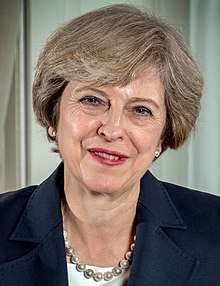
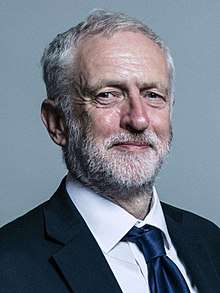
.jpg)
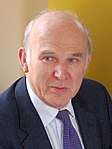
_2.jpg)
.jpg)
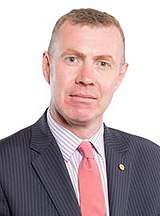
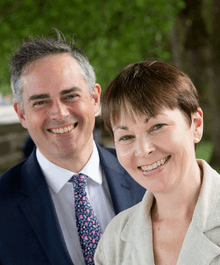
.jpg)
.png)
.jpg)

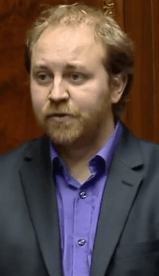
.jpg)
.jpg)